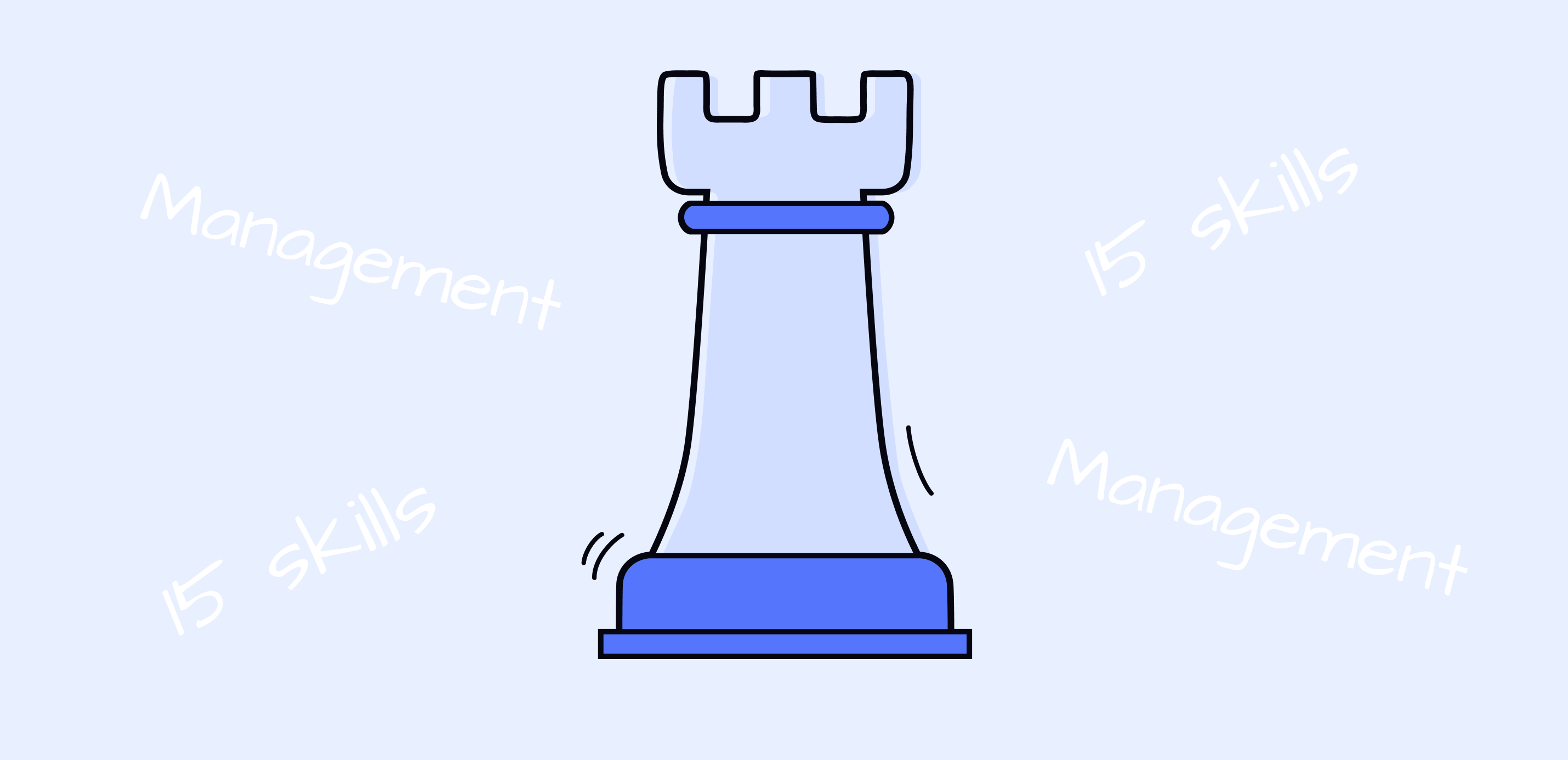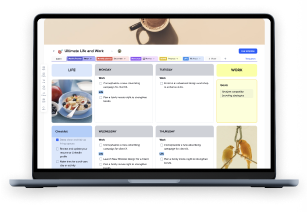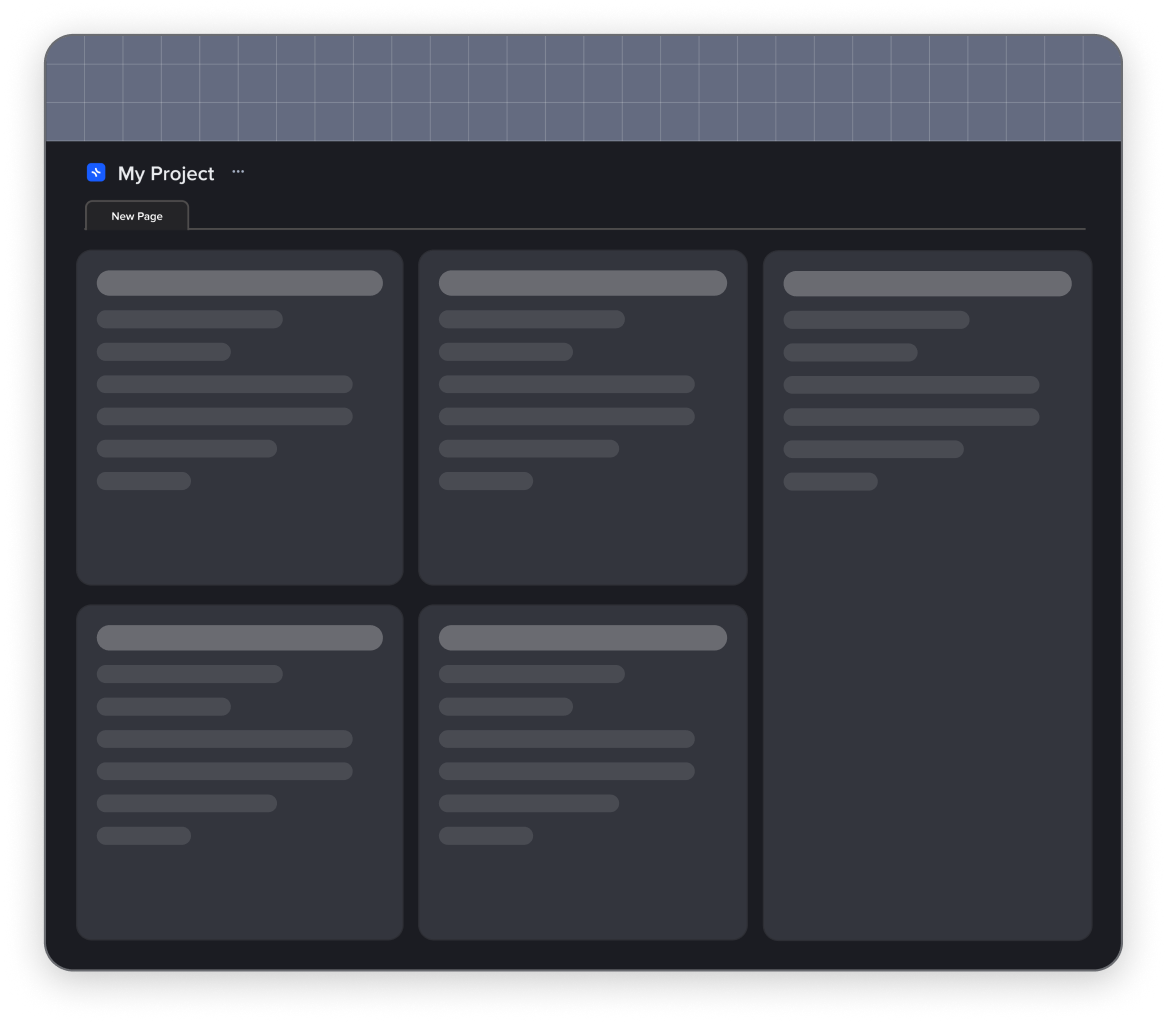Project managers are the gray cardinals of any project. At the end of the day, their traces are in every corner of the finished product. What it will look like is hugely defined by how they conduct their responsibilities.
Generally speaking, a project manager is a person responsible for a big mechanism to work and give results. The first person to answer all questions a team or client has. The person who ensures a healthy work environment for a team, distributes tasks evenly, and takes care of millions of separate processes at the same time. The person who, in some supernatural way, is in all places simultaneously. Sounds alluring?
The harder the job is, the bigger reward you get when done successfully, and project management confirms that.
However, what makes a great project manager? What features should one possess to be effective at this position? The set of skills for a project manager is pretty huge, which is no wonder. Certain technical skills should be matched with certain soft skills so that the result is someone extremely effective and passionate about what they do.

What are skills for project management?
Project management skills are mostly skills many people already possess naturally. You will not need to develop them from scratch when deciding to become a PM. However, everything is more complicated than it might seem regarding soft skills. Even though we know how to communicate, work on a team, or think critically, each of our skills must be sharpened in a certain way to make a person great at project management.
Also, a person needs to be acknowledged with many project management technologies, which might be pretty complicated, given that the position has become in demand since these tools were hard to use and maintain.
A PM should show the magic of versatility and flexibility and use all the resources they possess. Below you will find the most important skills a good project manager should have. We include both – the soft skills for project management and the technical skills a PM should have. However, after checking at least a few of them, you will see that none of them works separately. Nothing will work without communication, communication will be harder without empathy, and so on. Your skills are your unique attributes, and they should match each other. Yes, there might be some preponderance. Some of your skills may be better developed than others due to some natural factors, but that is what makes you and the approach you take special to your team. Also, there’s no point in rating them because each is crucial.
15 skills any project-manager should possess
Some say that soft skills (you may also know them under the names “people skills”, “interpersonal skills”, or “non-technical skills”) only support your technical skills to organize and execute work efficiently. However, these two are equally important.
1. Effective and healthy communication and collaboration

Communication is probably 90% of what PM is doing. It is the first step for any task to be done, for every checkbox to be thickened, and for every team member to understand what they should do. Polished communication skills usually are enough to resolve a problem, dispute, motivate someone, etc.
Many people think that since communication is one of the basic people skills, there’s no need to learn how to do it correctly and efficiently. However, communication is much more than talking with people about different things. It’s more about psychology, finding the right approach to everyone, creating healthy and meaningful relationships within a team, and easy-to-grasp articulation of what results you’re waiting for. Naturally, a person responsible for a team of many people should learn how to communicate.
Additionally, since there’s a team of different people who might lack developed communication skills, a PM must be able and ready to fill this gap with their excellent skills.
So, what to do to communicate effectively with your team? First and foremost, be honest and open even though sometimes it’s hard to say something. It may happen that being a PM is not always about bringing good news to your team. However, no matter what you need to tell them, make sure to show that you’re on their side and understand them.
Another important point is not to be scared to say that you think something is wrong and better to be redone or at least gone over. Yes, being a PM is also about being brave, having the ability to defend your point of view without harming anyone, and possessing great communication skills is what helps you with that.
We have already told you that you need to be honest and tell everyone if someone is wrong. Also, it’s great to develop the kind of relationship where every team member isn’t afraid to tell what they think. Trust within a team is key to getting the best result possible and enjoying the process.
Tasks that were set badly and work processes that were maintained poorly are the most often reasons for misunderstandings in teams. You may avoid such trouble by using xTiles to create an open and honest workflow.

2. Active listening
Know what else makes communication skills outstanding? The ability to listen and hear. In addition, how well you resolve conflicts or prevent them also depends on how well you can listen to someone. It helps to build a strong connection between team members, earn their trust, and avoid missing important information and details. That is undeniably one of the interpersonal skills that a project manager can’t work effectively without.
Active listening is when you concentrate on a person who talks entirely. You focus on what they try to bring to your attention, understand their message, and can answer thoughtfully.
There are certain techniques to help you improve your listening ability. Remember that the more you use them, the faster they will feel like the most natural thing in your life (this rule is applicable to any techniques and tools we mention in this article).
- Ask more questions.
You will get more details and help a speaker provide you with them easier. For example, it’s good to use open-ended questions where the speaker has to go further than just answering “yes” or “no”.
- Don’t be afraid to show empathy (more on that below).
Let a speaker feel comfortable and know that their ideas and the information they share is valuable. Try to make them feel you’re both on the same page.
- Share your experience.
It will help to build stronger connections between you and a speaker.
- Nod and smile encouragingly.
Nods and smiles encourage a person to continue. However, you should be careful with them to avoid making a strange and confusing impression. There’s a fine line between an easy, encouraging smile and a grin that might ruin the communication.
- Minimize distracting movements.

Don’t check your phone and watch while a speaker is still explaining something. The worst thing you can do is communicate verbally or nonverbally with other listeners while the person speaks.
3. Negotiation
Besides communication with your team, the people you work with every day, as a PM, you will need to be in touch with clients, and this part of the job is likely to be harder. You probably just met, know nothing about each other, and haven’t established contact. You need to be perceptive and break the ice so that your communication won’t be fruitless and you will return to your team with a clear vision of what the product should look like. In this part, a PM is a translator who expresses what a client wants smoothly but without losing the initial meaning.
Communication defines many other skills, like the ability to negotiate. Remember we told you that 90% of a project manager’s work is communicating with others? Well, negotiation is probably 90% of communication. There’s no chance you can avoid discussions about budget, resources, deadlines, scope creep, etc. Without the ability to negotiate everything tactfully, taking into account the ideas and thoughts of both parties will be no easy task.
To develop your negotiation skills, you need to learn persuasive techniques and apply them depending on the situation. The ability to choose suitable negotiation skills is another key skill a good project manager should possess. It won’t develop overnight. Knowledge of when to choose collaboration or compromise will come with time. Also, you may watch how other people convince their opponents. Knowing how people’s minds work in different situations helps you find the best solutions.
4. Organizational skills

What other key skills for a project manager are there? Definitely, organizational skills are one of them. A PM needs to track current tasks, whether everything is developing according to the initial idea, prioritize, and thoroughly document everything for later. And well, you will need to cope with all of these at the same time. Multitasking is still not your middle name?
The best news is that the popular idea that you can’t learn it is totally false and groundless. Just the same you develop and encourage your ability to turn the chaos into something constructive, you can learn how to do it.
We offer to check our blog post on how to be organized to learn different techniques. However, project management organization differs a bit from what we apply for daily use as more elements and more people are having an effect on the result. Being a PM, you define how other team members organize their work. That’s why one of your top priorities is establishing a solid workflow that won’t be a place for a mess.
Many people like organizing tools so hard, they use a lot of them at the same time. Trying to avoid chaos, they only get more of it. Choose one tool to serve as your place of truth and task manager for yourself and present it to your team using your negotiation skills. Sometimes the transitioning period is more complicated than handling 10 apps was, but eventually, relief will come. Except for a wide variety of functions and an easy-to-use interface, xTiles also offers tons of ready-to-go templates to handle different kinds of tasks a project manager may have.
5. Being a team player
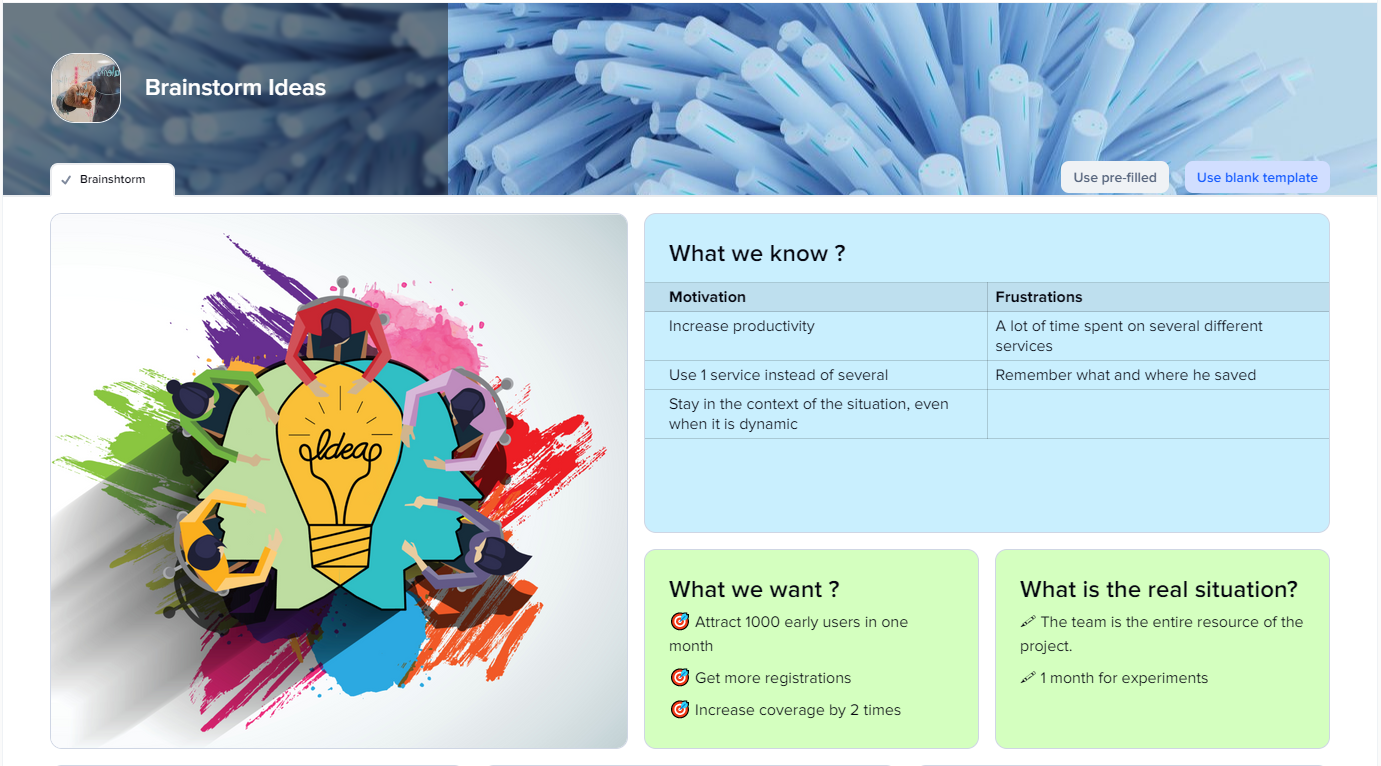
Everyone knows what it means to be a team player – you collaborate with your colleagues, everyone is equal, and the workflow is based on democratic principles. However, being a team player when you’re a PM differs from traditional understanding.
A good PM knows everything about their team and always remembers that all ideas and thoughts are precious. The project is not only yours but belongs to the whole team, even though you’re its face. A humble but confident PM does miracles in communication with other team members and clients.
Your task is also to help others feel they are part of the team. How to reach that? Collective brainstorming sessions (by the way, here is our Brainstorming Template to conduct the process effortlessly), regular 1:1 meetings, and team building. Also, asking for feedback and how your colleagues see its path and development is good.
6. Strategic thinking and risk management

Seeing two steps ahead is one of the key skills for a project manager, allowing one to plan and execute projects successfully. Consistent personal planning is the first step to succeed in developing this skill.
We call it “strategic thinking”, but, in some way, it is rather the ability to foresee the future, using your gut to understand the whole process, or having the sixth feeling. That’s why this required project manager skill is harder to learn than other ones we discuss in this article.
The approach “will figure that out later while working on that” isn’t the most effective one. Usually, it leads to nowhere or brings serious problems to the whole team.
The ability to analyze is strongly connected with risk management. You need to understand how to predict the possible risks and manage them. You might face different kinds of risks – security, personnel, financial, market, etc. The basic strategy is pretty simple for all of them.
- Determine the risk.
Try to find out what exactly might go wrong. Usually, you will have not one possible problem but many, which is okay.
- Analyze what you’ve got.
Check the list you’ve got after the first step applying to every threat two questions – “What chances are that would happen?” and “What will happen to the project in case that threat occurs?”.
- Prioritize the risks.
Decide the most terrifying and dangerous threat to your project or product.
- Treat the risk.
Start to resolve risks depending on their priority. You may go four ways: accept the risk given the fact that the benefit of continuing what and how you do is worth the risk; try to avoid it; try to control it by looking for methods to prevent or fix it; transfer the risk to another company/organization/team.
- Watch over it.
Once you’re done with treating the risks, don’t forget about them. It’s always a good idea to keep an eye on and look at what changes.

Strategic thinking and risk management are those things that come with time. However, if you’ve only just started, it doesn’t mean you have no chances. Let’s say you start a task with many elements and many people involved, and you need to “see” how everything will turn out and what issues might arise during the process. Naturally, a crystal ball won’t work for this case, but the ability to analyze, ask thousands of questions and make conclusions will. You may try the xTiles SWOT Analysis Template to discover your project’s threats and opportunities. You may also try the xTiles Disney Creative Strategy Template to estimate your ideas and solutions for all possible scenarios.
7. Empathy

That is the most impersonal skill a PM should possess, yet still super important to maintain healthy relationships within a team, connect with each member, and understand their concerns. Empathy will help develop strong and trustable relationships on a team. A project manager who shares and understands other teammates’ feelings is more likely to create a positive and productive environment.
Empathy is one of the most important requirements for successful communication. If you understand your team’s perspectives, fears, and worries, it will be much easier to bring trust and respect into how you interact within the team.
Showing a person that you really care about their personal goals or concerns motivates them to grow and develop their skills. That is how you get a team of highly motivated specialists who are passionate about what they do and constantly strive to improve.
Finally, successfully resolving conflicts within a team would be much harder or even impossible without empathy. It will help you understand and relate to the perspectives and arguments of all parties involved. Then, you use your impeccable communication and negotiation skills to get the best solution.
How to develop empathy? We believe that it is one of the natural features every person possesses. Some are more empathetic than others, yet we know how it works and how it looks so that we can learn it and grow a habit. First of all, respect is above all. Every team member is important and doesn’t deserve to be neglected or belittled because of unreasonable ideas or offers. Another important aspect of being an empathetic and understanding project manager is knowing that personal troubles or issues are better to discuss in 1:1 meetings, not in front of the whole team. You may know more than others about others, but it’s not a tool for growing power. It’s your job.

Personal meetings are important for the feedback you receive. Also, documenting the information your co-workers provide you with and their impression of their job is important too. You may try the xTiles Meeting Notes Template to kill two birds with one shot.
8. Time management

One more key skill for a project manager is time management. What usually happens if a team misses a deadline? The Universe won’t collapse, creating a black hole of wasted opportunities and time. The deadline police won’t come to you to talk about the importance of punctuality. However, it might have a damaging effect on the team’s morale and reputation, and project completion. It most definitely will increase stress and workload. Sometimes, it leads to contractual or legal issues.
A PM is a person who takes a deadline the most seriously and does everything everyone else keeps remembering. Time management starts with organizing the whole process. It will be impossible to meet deadlines if your workflow is a total mess. Use a tool suitable for quick and easy task setting and tracking progress. For example, in xTiles you can set tasks in the document you’re working on, but the service collects them from anywhere and presents the assignees with a list of to-dos.
Another important ability for successful time management is prioritizing tasks. You may use the xTiles Management Matrix Template to teach yourself to define what tasks need to be completed right away and what tasks can wait a bit.
Also, you and your team may find our Kanban Board Template quite useful and easy to maintain. Just put all your tasks in a backlog and then start completing them in turn. However, it’s better you check our Templates Gallery for yourself and find what is suitable.
9. Leadership

If you consider yourself nothing like a leader but hold the position of a project manager, your team probably considers you one and looks up to you. Strong leadership skills enable a person to guide the team.
Defining what leadership in project management is, we also need to remember that it has nothing to do with autocracy. You lead the team, not rule.
Many internal processes depend on whether a team sees a leader in you. Otherwise, they won’t trust you and your decisions, and their motivation to do their job professionally and on time will likely decrease.
Other people who should consider you as a leader are clients and stakeholders. Your authority usually speaks for the whole team, so you need to be confident in what you say or offer to them.
So, what will help you become a leader? Many of the needed skills we already described above. If you carefully track the work process, constantly bring new ideas and solutions that actually work, and make the teammates’ lives easier, they are going to love you and trust you. Also, it’s easier to win the heart of one person at a time than the whole team at the same time, so 1:1 meetings will come in handy one more time.
10. Budget management

We’re trying to change the world with our projects, yet we can’t escape from frail questions like money and budgets. Creating a budget and controlling it through the lifecycle is one of the top skills for a project manager.
Budgeting software might be quite complicated for an unacknowledged person. It might take you days to find out how it works, especially if no one is around to help. That’s why taking a budgeting course may be good for developing your budget management skills.
At first glance, you may decide that this skill is definitely a technical one. Well, not entirely. For example, it won’t work at all or will work worse without adequate communication. The budget never depends on a project manager entirely. They are mediators between stakeholders and the money for the project. If your communication skills are remarkable, you will likely get the sum you need. Also, discussing the budget with a team once you see that you’re far ahead of the limits is important.
11. Problem-solving

Problems are part of any work process. They help discover new ways and solutions to make your product even better. Issues are inevitable for development, which is why a PM should be ready to resolve them. Please, don’t be scared that this is a common practice, and project management is nothing more than “cleaning” after others. Some problems will be minor, some will be easy to resolve, but some might get you stuck for days.
Great problem-solving skills aren’t about having ready answers to any questions. It’s about the ability to analyze problems from different angles and encouraging everyone to think outside the box.
You may apply an old but gold method that consists of only four steps to resolve current issues. The best part is that it’s super easy to use and suits almost all situations.
- Identify the problem you need to get resolved.
- Brainstorm possible solutions (you may do it with your team or alone. For the second option, we offer you our Individual Brainstorming Template).
- Define what solution will be the best.
- Just do it.
Some cases are harder than others and will take time until you find the best possible solution. The second step might take days or even weeks to come up with something really great. Finding creativity inside you and breaking a block to generate new ideas will be a bit easier when you know what result you need. You may try different techniques. For example, one of the most common is turning the problem upside down and trying to find the solution for the opposite. It will help you turn your mind in another direction and have some rest.
12. Adaptability

Flexibility is one of the key skills a project manager should have. However, this one will help you anywhere you go because, in an ever-changing world, you can’t stay still.
Often changes are happening against your will, and everything you can do is whether to take them and use them to your advantage or deny them and be frustrated. Even though we can’t control everything, we at least can control how we act when something happens. A team, during challenging times, needs someone to guide them, show support and understanding, and answer questions.
Adaptability starts with self-awareness, mindfulness, and the ability to listen to yourself. And your leadership skills will depend on how well you adapt to new circumstances. If you want to hone your adaptability skills, start by improving your problem-solving ones. A person who can resolve any trouble won’t be afraid of any changes, especially if you also teach yourself to embrace them. Every situation has benefits and hardships, but don’t let the bad part overcome what is positive.
13. Project management methodologies

That is likely the exact reason why teams need project managers. There has to be someone to set all the processes, follow the rules, respect deadlines, deliver information, and keep an eye on the project in general. We have many methodologies to choose from to make all these actions easier.
You may work on a team that prefers one kind of methodology, and then you change your job and have to start using another methodology. There are quite a lot of them, so learning and polishing each of them will take time. That’s where adaptability will help you.
Project management methodologies are beneficial for the whole team and project on many levels. They help you create a project’s timeline, defining its development and implementation. Also, if set correctly, it will help you identify potential risks and develop the team’s skills according to the methodology you’ve chosen. It’s important to decide on a methodology that will be not only suitable for the project and its goals but also will satisfy your team. Sometimes, the easier, the better because the team will spend less time on documentation and organization.
14. Conflicts resolution

Arguments and disputes are part of teamwork. That’s how the best solutions and ideas are born. However, if not conducted properly, they may lead to serious disagreements. As a PM, you might be considered a judge to decide who’s right and who’s wrong. It doesn’t matter who is involved – team members, executive managers, stakeholders, or each of them – your main task is to address all sides and make them feel heard.
The skill lies between communication, negotiation, empathy, and resolving problems. In other words, they all are connected, and if you’re good with those ones, you probably can handle any conflict in your team in a second with everyone being happy. However, as with any other interpersonal skill, conflict resolution takes time to develop and needs constant practice and polishing. Here are a couple of techniques that proved to be highly effective.
- “I” statements
When explaining to another person why you think they are wrong, talk about yourself and your feelings. Start your sentences with “I” instead of “you” to adapt the current situation to your experience.
- Facts VS. Stories.
Focus on facts, on what has happened instead of considering stories, i.e., what might or might not have happened. Don’t go with any versions of truth when identifying the problem.
- Privacy is important.
Respecting your teammates means you keep what was said behind a locked door.
- Try to come up with a plan where both sides are happy
It will be much harder than simply taking someone’s side, but it will help end the conflict like nothing has happened with no or little impact on the relationships inside the team.
15. Team management
We decided to finish our list with the most obvious skills a project manager should have – the ability to manage a team. All the skills we described above work in concert with each other, creating the basic set that helps to be a person who can guide teams of individuals and make their interests, and those the company/executive management/stakeholders have to meet and match. Any of your interpersonal skills is a great addition to this set and will help you not only do your job but also develop your unique style and approach for which you will be loved by your colleagues.
Summing up

What if I don’t possess all of these skills just yet, or some of mine would use some development? Then, fake it until you make it. Learn different techniques and try them in practice, use different tools, learn from others, and try to be the person you would like to see as your project manager if you were a common team member.
If you want to learn more and ease the process, you may try xTiles for team and project management. It will save you time in researching needed information and methodologies, provide you with ready-to-use templates for any kind of task, and give you and your team a safe and comfortable place to organize and manage the project.


